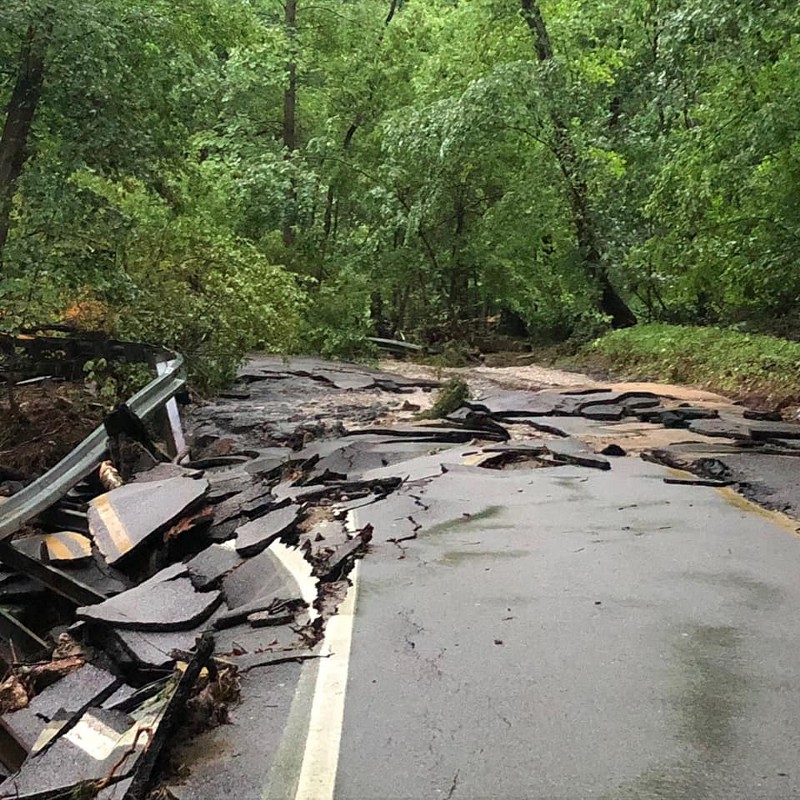
Sunday’s rainstorm flooded Catonsville and devastated Ellicott City, damaging homes, businesses, roads, and lives. The Baltimore Sun reposted this article from 2016, exploring overdevelopment’s impact on the flood in Ellicott City. Although it’s difficult to pinpoint how much development contributed to the devastation last Sunday and in 2016, there’s a clear link between impervious surfaces (such as pavement, parking lots, and roofs) and the effects of stormwater runoff. Undeveloped areas, particularly undisturbed forests, absorb runoff and filter toxins. Impervious surfaces do neither, allowing contaminated water to freely flow into our waterways.
County government could help prevent future disasters through careful developmental and environmental policies. Smarter planning and sustainable redevelopment would limit the addition of impervious surfaces and reduce runoff from already developed land. More stormwater remediation projects, such as green infrastructure, would absorb and filter water before it reaches our waterways and Chesapeake Bay.
My opponent, Councilman Tom Quirk, has failed to provide leadership in either of these areas. Development is rubber stamped, sometimes cramming excessive houses into tiny areas, which strains infrastructure such as roads and sewer systems. And in 2015 he voted, along with the rest of the County Council, to repeal the Stormwater Remediation fee that was used to pay for remediation projects. I’ve previously detailed how fiscally and environmentally irresponsible this was.
Quirk touts his environmental record, including his work on the Catonsville Rails to Trails and downzoning “hundreds of acres” to protect greenspace. Like many in Catonsville, I love the Rails to Trails paths; my husband and I enjoy walking them. However, he cannot see the forest for the trees; these efforts fall far short of the fundamental improvements needed for sustainability and a healthy environment. Our ailing commercial corridors, with their acres and acres of parking lots — including the blight of Security Square Mall — worsen the runoff problem. Where is Quirk’s leadership on that? In fact, repealing the stormwater remediation fee removed a major incentive for property owners to redevelop those areas.
More remediation projects and less impervious surfaces may not have eliminated Sunday’s flooding, but it could well have reduced the damage. As your councilperson I pledge to lead in these issues, guide all development by sustainable, smart growth principles in a community-oriented process, adequately fund remediation projects, and put the heaviest burden on the businesses with the worst impact on runoff and the quality of our water.
